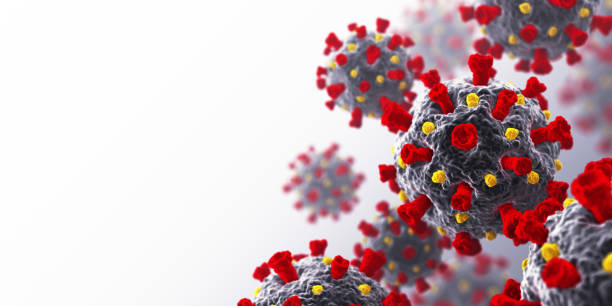A recent study by the Oxford University Press has found that a COVID-19 infection may trigger Guillain-Barré syndrome in patients.
The symptoms of COVID-19 have drastically changed over the course of the pandemic. What was once considered a purely respiratory disease, has now been established as a viral infection with several long-term complications. Other than typical respiratory symptoms, COVID-19 can also present with neurological complications such as Parkinson’s and Guillain-Barré syndrome (GBS).
Since the start of the pandemic, researchers have reported over 90 GBS cases with a possible link to COVID-19 infection. However, it is unclear whether there is a causal relationship between the two. Recently, a team of researchers investigated this link further by looking at data from the International GBS Outcome Study (IGOS). This is an ongoing prospective observational cohort study including an international collection of GBS patients. The study authors analyzed data from January 30th until May 30th 2020. They aimed to assess the number of patients with a preceding or concurrent COVID-19 infection. The results of the study are available in the journal Brain.
Coincidental or Causal?
Guillain-Barré syndrome is an autoimmune disorder, triggered by a viral or bacterial infection. Symptoms include sensory involvement and muscle weakness that can slowly progress to paralysis. Although rare, the neurological disorder has a severe outcome.
The study authors analyzed data from approximately 49 GBS patients added between 30th January to 30th May 2020. The patients belonged from the UK, France, China, Denmark, Switzerland, Greece, Italy, the Netherlands, and Spain. According to the results, 22% of these patients had a preceding COVID-19 infection. All patients were aged 50 years or above. The most common symptom among them was facial palsy. Moreover, all patients with a COVID-19 infection had a severe form of a neurological condition, rendering their ability to walk independently.
However, compared to previous years, study authors did not find more GBS patients during the first four months of the pandemic. In conclusion, the researchers believe that a strong association between COVID-19 infection and Guillain-Barré syndrome is unlikely. Nevertheless, it cannot be denied that the viral infection acts as a trigger for GBS.
Our study shows that COVID-19 may precede Guillain-Barré syndrome in rare cases, but the existence of a true association or causal relation still needs to be established.
Bart C. Jacobs, study author
Reference:
Linda W G Luijten et al, Guillain-Barré syndrome after SARS-CoV-2 infection in an international prospective cohort study, Brain (2021). DOI: 10.1093/brain/awab279




